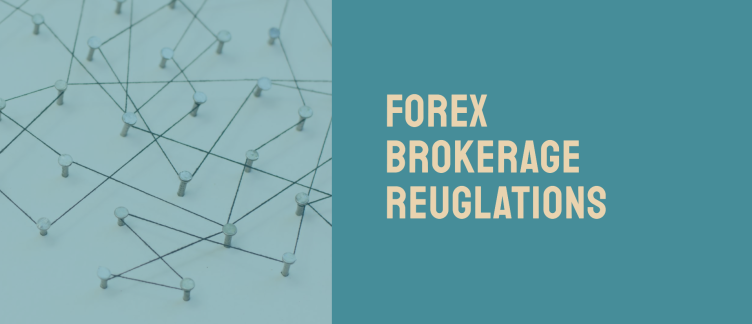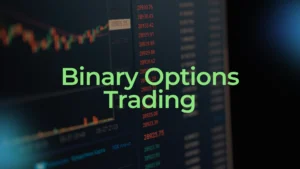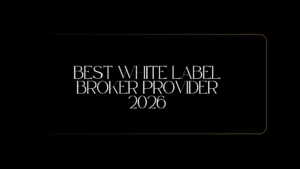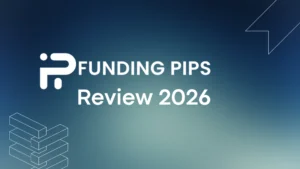For entrepreneurs and firms launching a forex brokerage, selecting the right forex license is the most critical regulatory decision. This guide analyzes forex regulation across jurisdictions, compares costs and requirements, and provides a framework for choosing the best jurisdiction for your forex broker. For more foundational reading, explore our comprehensive introduction to liquidity and brokerage operations.
Key Takeaways
- A forex broker license is essential for legal operation, client trust, and banking relationships
- Jurisdictions fall into four categories based on prestige, cost, and requirements
- Total cost includes registration cost, minimum capital requirement, and ongoing maintenance cost
- The forex licensing process typically takes 2-12 months depending on jurisdiction
Why a Forex Broker License is Essential
A forex brokerage license provides legal authorization to operate, hold client money, and offer trading services. Operating without proper regulation severely limits growth and credibility in the forex market.
Key benefits of being a licensed forex broker:
- Legal protection and operational legitimacy
- Access to banking services and payment processors
- Enhanced forex broker reputation and client trust
- Ability to advertise on major platforms and acquire clients in regulated markets
- Protection against being blacklisted by the FATF black list
Forex License Categories Explained
Jurisdictions are categorized based on regulatory strictness, costs, and target markets. For a deeper dive into specific regulations, check our detailed MISA forex license guide and our article on choosing regulation for your forex brokerage.
Category A: Top-Tier Licenses
Most prestigious and demanding jurisdictions with the highest minimum equity requirements.
Examples:
- US Forex License (NFA) – $20M capital
- Switzerland Forex License (FINMA)
Best for: Large institutions requiring maximum credibility
Category B: Universal Jurisdictions
Highly respected regulators with strong investor protection frameworks.
Examples:
- UK Forex License (FCA)
- Australia Forex License (ASIC)
Best for: Established brokers targeting sophisticated international clients
Category C: Popular Jurisdictions
Balanced approach with good credibility and reasonable costs.
Examples:
- CySEC Forex License (Cyprus)
- MFSA License (Malta)
- New Zealand FMA License
Best for: Growing brokers targeting European markets
Category D: Offshore Jurisdictions
Fastest setup, lowest costs, and favorable tax regime conditions.
Examples:
- Vanuatu Forex License
- Seychelles Forex License
- Belize Forex License
- British Virgin Islands Forex License
Best for: Startups and beginner forex brokers
Forex License Comparison Table
| Jurisdiction | Regulator | Minimum Capital | Timeframe | Key Advantage |
|---|---|---|---|---|
| Cyprus (Category C) | CySEC | €200,000 | 6-8 months | EU Passport, 12.5% tax |
| Vanuatu (Category D) | VFSC | $50,000 | 2-3 months | Lowest cost, fastest setup |
| Seychelles (Category D) | FSA | $50,000 | 3-4 months | Tax efficiency, stability |
| Malta (Category C) | MFSA | €730,000 | 6-9 months | EU credibility |
| Belize (Category D) | IFSC | $100,000 | 40-60 days | Simple process |
Key Factors in Choosing a Forex License
1. Total Cost Analysis
Calculate registration cost, maintenance cost, legal fees, and locked initial capital. The total forex license cost often exceeds initial estimates. Learn more about forex brokerage startup costs.
2. Target Market
EU clients expect EU regulators like CySEC or MFSA. Asian markets may accept FSA or FSC licenses.
3. Political Stability
Ensure political system stability and avoid jurisdictions on the FATF black list to maintain banking relationships.
4. Tax Considerations
Evaluate the corporate tax rate (0% to 12.5%) and availability of double-taxation treaties.
5. Time to Market
The forex license issue term varies from 2 months (offshore) to 12+ months (top-tier).
6. Banking Access
Some jurisdictions face banking restrictions. Verify banking access before applying for your forex license.
The Forex Licensing Process
Obtaining a forex license involves these key steps. For a complete step-by-step guide, read our article on how to get a forex broker license.
- Jurisdiction Selection: Choose based on your business model and budget
- Company Formation: Register a legal entity in the chosen jurisdiction
- Document Preparation: Business plan, AML/KYC policies, compliance manuals
- Capital Deposition: Place minimum capital requirement in a local bank
- Application Submission: Submit license application to the financial services commission
- Fit and Proper Test: Background checks on directors and shareholders
- Approval & Launch: Receive forex license document and commence operations
Choosing Between Turnkey Solutions vs DIY
Turnkey forex license solutions offer complete package services. For those considering this route, explore our guide to forex turnkey solutions and our list of top forex white label providers.
- Company registration and forex company registration
- Complete forex license documentation preparation
- Local office setup and nominee services
- Bank account opening assistance
- Ongoing compliance support
For beginner forex brokers, turnkey solutions from experienced forex broker legal services or fintech lawyers can save time and reduce errors in the complex forex licensing process.
Complementary Services for Licensed Brokers
Once you have your forex broker license, you’ll need additional services. Consider these essential components:
- Liquidity providers for market access
- CRM solutions for client management
- Trading platforms like MT4, MT5, or cTrader
- Broker-LP partnerships for optimal execution
- Risk management strategies (A-book vs B-book)
Conclusion: Making the Right Choice
Choosing the right forex regulatory jurisdiction requires balancing multiple factors. For additional insights, read our article on launching your forex brokerage and our 2024 startup guide.
- Your target market’s expectations
- Available forex license budget
- Desired forex broker credibility
- Long-term business strategy
For most new brokers: Start with a Category D offshore forex license (like Vanuatu or Seychelles) to validate your business model, then upgrade to a Category C license (like CySEC) as you scale and target regulated markets. For offshore options, see our Saint Lucia incorporation guide.
For established firms: Consider Category B licenses (FCA, ASIC) for maximum credibility with sophisticated clients. Also explore our top forex license providers for professional assistance.
Remember that your forex broker license is not just a compliance requirement—it’s a strategic business asset that defines your market positioning, operational costs, and growth potential in the competitive forex market. Stay updated with the latest fintech news and developments to make informed decisions about your brokerage’s regulatory strategy.
Next Steps
Ready to move forward? Consider these resources:
- Create a business plan for your brokerage
- Explore liquidity provider options
- Learn about LP-brokerage collaboration
- Check our top forex brokers list for competitive analysis
- Review prime of prime liquidity options
Forex Broker Regulation & Licensing FAQ
Complete guide to forex broker regulation, licensing requirements, and compliance solutions for retail and institutional brokers. Expert insights from LiquidityFeed.
What are the minimum capital requirements for a US forex broker license?
To obtain a US forex broker license as an RFED (Retail Foreign Exchange Dealer) or forex-dealing FCM, you must maintain at least $20 million in adjusted net capital. Additionally, brokers must hold 5% of liabilities exceeding $10 million owed to retail forex customers. This is significantly higher than offshore forex regulation requirements, which often start under $100,000 in jurisdictions like Belize or Seychelles.
For Introducing Brokers (IBs) in the US, capital requirements are lower: $45,000 for independent IBs, with guaranteed IBs having no minimum if backed by a registered FCM or RFED.
How do I choose between FCA, ASIC, and CySEC regulation for my forex brokerage?
Choosing between FCA regulation (UK), ASIC regulation (Australia), and CySEC regulation (Cyprus) depends on your target market, capital availability, and business model:
- FCA: Highest credibility, £730,000+ capital, strict leverage limits (30:1), best for EU/UK focused brokers
- ASIC: AUD 1 million minimum, popular for Asia-Pacific markets, respected globally with 30:1 leverage caps
- CySEC: €730,000 minimum, EU passporting rights, faster approval process, ideal for European retail focus
All three offer client fund segregation and investor compensation schemes.
What is the difference between an RFED and an FCM for forex brokers?
Under CFTC NFA registration, the key distinction is:
- RFED (Retail Foreign Exchange Dealer): Acts as counterparty to retail forex trades, dealing directly with clients. Must maintain $20 million capital.
- FCM (Futures Commission Merchant): Can handle both forex and futures/options transactions. Forex-dealing FCMs have same $20 million requirement but broader product permissions.
- Introducing Broker (IB): Solicits clients but doesn’t hold funds or act as counterparty. Lower capital requirements.
Most retail forex brokers register as RFEDs for dedicated forex operations.
Can offshore-regulated brokers legally serve US or EU clients?
No. Offshore forex brokers from jurisdictions like Belize, Saint Vincent, or Seychelles cannot legally solicit or serve clients in regulated markets without proper local registration. The CFTC and NFA strictly prohibit unlicensed solicitation of US retail forex clients. Similarly, FCA and ESMA regulations require authorization to serve EU/UK clients.
Attempting to serve regulated market clients with only offshore licenses can result in enforcement actions, fines, and platform blocking. Proper licensing must match your target client geography.
What are the ongoing compliance requirements for a regulated forex broker?
+After obtaining your forex broker license, ongoing compliance includes:
- Monthly financial reporting to regulators
- Annual independent audits
- Continuous AML/KYC monitoring and suspicious activity reporting
- Regular staff training and supervision
- Maintaining client fund segregation with daily reconciliations
- Adherence to leverage limits (50:1 US, 30:1 EU/UK/AU)
- Marketing material review and approval
- Cybersecurity program maintenance and testing
How long does it take to get a forex broker license from major regulators?
Timelines vary significantly by jurisdiction:
- US (CFTC/NFA): 6-9 months with complete application and $20M capital ready
- UK (FCA): 6-12 months depending on complexity
- Australia (ASIC): 3-6 months for AFS license
- Cyprus (CySEC): 4-6 months with proper documentation
- Offshore (Belize/Seychelles): 2-8 weeks with minimal requirements
Preparation of compliance procedures, business plans, and financial documentation is crucial for timely approval.
What are the leverage limits for retail forex brokers in different jurisdictions?
Leverage restrictions are a key component of forex broker regulation:
- United States (CFTC): 50:1 for major pairs, 20:1 for minors
- European Union (ESMA): 30:1 majors, 20:1 minors, 10:1 commodities
- United Kingdom (FCA): 30:1 majors, 20:1 minors
- Australia (ASIC): 30:1 majors, 20:1 minors
- Japan (JFSA): 25:1 all pairs
- Offshore jurisdictions: Often 500:1+ with minimal restrictions
These limits apply to retail clients only; institutional clients typically face fewer restrictions.
How does client fund segregation work for regulated forex brokers?
Client fund segregation is a fundamental requirement for regulated forex brokers. Under FCA, ASIC, CFTC, and CySEC rules:
- Client funds must be held in separate bank accounts from company operational funds
- Funds cannot be used for broker’s business expenses or investments
- Daily reconciliation and reporting are mandatory
- In case of broker insolvency, segregated funds are protected and returned to clients
- Top-tier regulators require accounts at approved creditworthy banks
Most offshore regulators do not enforce strict segregation requirements, increasing client risk.
Can Iranian traders use regulated forex brokers?
Most regulated forex brokers from major jurisdictions (FCA, ASIC, CFTC, CySEC) cannot legally serve Iranian residents due to international sanctions and compliance restrictions. However:
- Some offshore-regulated brokers from jurisdictions like Seychelles or Saint Vincent accept Iranian clients
- Brokers with specific licensing for MENA regions may offer services
- Iranian traders should verify a broker’s explicit policy on serving their jurisdiction
- Compliance with OFAC sanctions is mandatory for all US-regulated entities
Traders should prioritize brokers with transparent jurisdiction policies and secure fund handling.
What are the main risks of using an unregulated forex broker?
Using an unregulated forex broker exposes traders to significant risks:
- No fund protection: Client funds may not be segregated and can be used for operational expenses
- No legal recourse: No regulatory body to handle complaints or disputes
- Manipulation risk: No oversight on price manipulation or unfair execution
- No compensation scheme: No investor protection if broker fails
- Withdrawal issues: Higher incidence of withdrawal delays or denials
- Security vulnerabilities: Lower cybersecurity standards
Always verify regulation through official regulator databases before depositing funds.
What is the cost difference between onshore and offshore forex broker licensing?
The cost disparity between onshore vs offshore regulation is substantial:
- US (CFTC/NFA): $20M+ capital, $100K+ application/legal fees, high ongoing costs
- UK (FCA): £730K+ capital, £50K+ setup, significant compliance overhead
- Australia (ASIC): AUD 1M+ capital, AUD 50K+ setup, moderate ongoing costs
- Cyprus (CySEC): €730K+ capital, €30K+ setup, moderate costs
- Offshore (Belize/Seychelles): $5K-$50K capital, $10K-$30K total setup, minimal ongoing
These costs reflect the level of investor protection and market access provided.
How do I verify if a forex broker is truly regulated?
To verify a broker’s regulation, follow these steps:
- Get the exact regulatory license number from the broker’s website
- Visit the official regulator’s website (FCA, ASIC, CySEC, etc.)
- Use the regulator’s search function to verify the license
- Confirm the broker’s name, address, and permitted activities match
- Check for any disciplinary actions or warnings
- Verify the broker is authorized for your specific region
Never trust regulation claims without independent verification. Many brokers falsely display logos or claim expired/inactive licenses.
What are the advantages of ASIC regulation for forex brokers?
ASIC regulation offers several advantages for forex brokers:
- Global reputation: Highly respected regulator with international recognition
- Market access: Gateway to Asia-Pacific markets with growing trader base
- Balanced requirements: Strong protections without excessive bureaucracy
- Client trust: ASIC-regulated brokers attract quality clients seeking security
- Segregation guarantee: Mandatory client fund separation with reputable banks
- Clear leverage rules: 30:1 majors, 20:1 minors with consistent enforcement
ASIC’s AFS license is particularly popular for brokers targeting international retail clients.
Can a forex broker be regulated in multiple jurisdictions simultaneously?
Yes, many established forex brokers maintain multiple regulatory licenses to serve different markets:
- Regional compliance: Different licenses for EU, UK, Australia, etc.
- Entity separation: Separate legal entities for each regulated jurisdiction
- Client segmentation: Clients directed to appropriate regulated entity based on location
- Offshore component: Often one offshore entity for unrestricted markets
Examples: A broker might have CySEC for EU, FCA for UK, ASIC for Australia, and offshore for other regions. Each entity must maintain separate capital, compliance, and reporting.
What are the first steps to start a regulated forex brokerage?
Starting a regulated forex brokerage requires careful planning:
- Market research: Define target clients, regions, and competitive positioning
- Jurisdiction selection: Choose appropriate regulation based on target markets and capital
- Business plan: Detailed financial projections, operations plan, risk management
- Capital raising: Secure required regulatory capital (from $20M for US to $100K+ for offshore)
- Legal structure: Incorporate appropriate entities in chosen jurisdictions
- Technology setup: Trading platform, liquidity feeds, backoffice systems
- Compliance foundation: Develop AML/KYC, risk management, operational procedures
- Application preparation: Complete regulator applications with professional guidance
Most successful brokers partner with experienced consultants for licensing and setup. The process typically takes 3-12 months depending on jurisdiction complexity.
